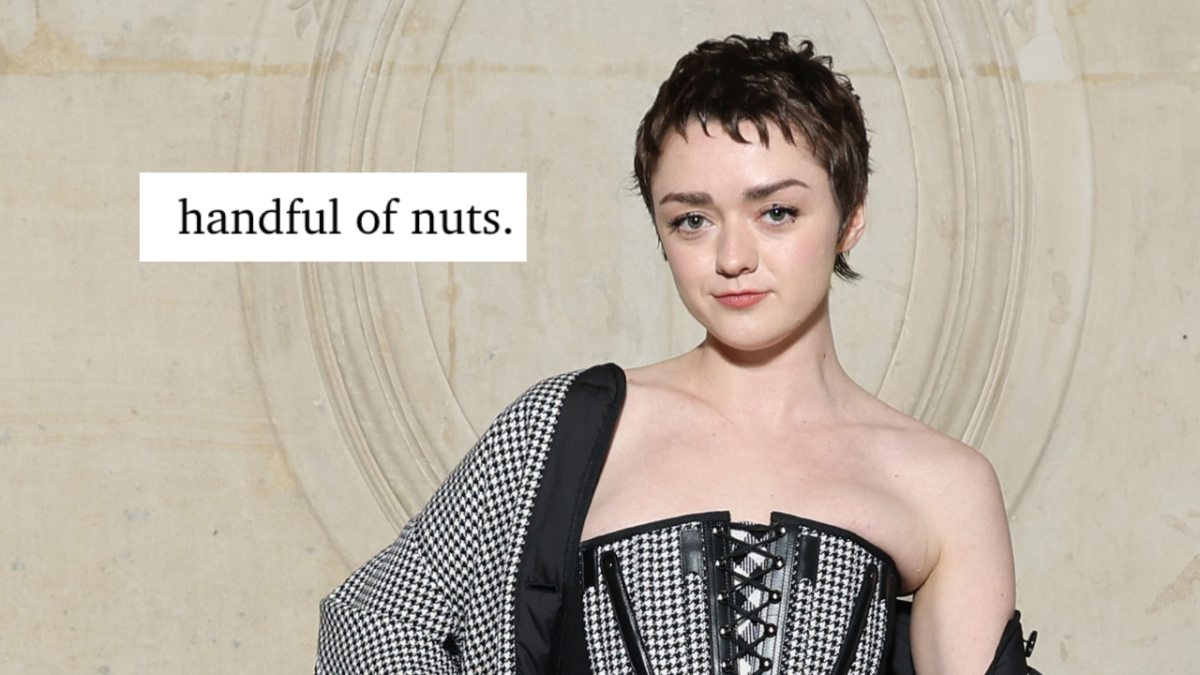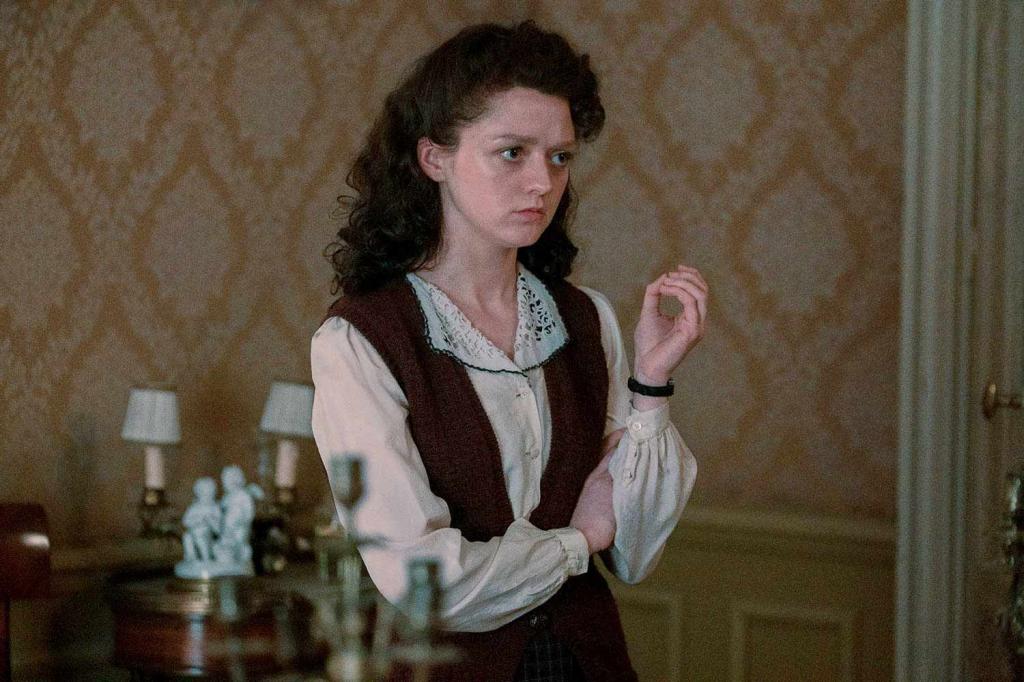
CONTENT WARNING: This article discusses disordered eating.
Losing weight or engaging in extreme body transformations is unfortunately a normal part of the job for many actors. But in 2024, why are we still sharing how these celebrities lost all that weight, especially when we know how harmful this can be for young people who are prone to disordered eating?
Maisie Williams of Game of Thrones fame is set to star in soon-to-be-released biographical drama The New Look, which follows the rise of Christian Dior post-World War II.
In a recent interview, Williams discussed the transformation her body took to play Catherine Dior, Christian’s younger sister who was a French resistance fighter during the war before she was captured by Nazis and tortured in a concentration camp.
To realistically portray Catherine’s emaciated look, Williams went through a gruelling transformation (which was overseen by medical professionals). This included losing weight through extreme dieting — which she described in an interview with Harper’s Bazaar UK.
She discussed being starving and using intense measures to lose weight, including eating “a handful of nuts” to get her through.

Unsurprisingly, this story is making headlines for all the wrong reasons, and I find myself frustrated that in 2024, we are still reproducing these stories uncritically — or even sharing the gruelling steps these celebrities are taking in the first place.
I know, I know — Maisie Williams’ weight loss was overseen by doctors! It was safe, and necessary for the role! This I don’t dispute.
My issue isn’t that Williams in particular went through her transformation, or that celebrities in general do this — my concern lies in the fact that young people, likely mostly teenaged girls, are going to read this article, and they’re going to take notes.
As a former teenage girl who was sadly surrounded by “pro-ana” and “thinspo” content in my own youth, I know how damaging exposure to extreme weight loss regimens can be. I know that if I was 15 when I read William’s interview, my first thought would have been “Huh. Nuts to curb your appetite? I have to try that.”
I was frequently skipping meals or eating very little in pursuit of skinniness, and wearing extra layers to sweat more in the vain hope of reaching what I now know was extremely unhealthy body goals. I grew up during a time where magazines openly and brazenly told women to just drink a litre of water every time they were hungry (or try having cancer!) — starvation was considered normal, and in many online circles it still is.
It’s with these experiences that I feel concerned when I then see publications and celebrities share their gruelling regimens casually, because I know for a fact there is a young person right now who is going to copy them, without the medical oversight.

The Butterfly Foundation told PEDESTRIAN.TV that dieting and extreme weight loss behaviours are a significant risk factor for developing an eating disorder — and so details like the ones Williams shared can be pretty triggering.
“Detailing specific behaviours, measurements and quantities in relation to losing weight is extremely dangerous as it can prompt those experiencing or vulnerable to an eating disorder to engage in damaging ‘copycat’ behaviours,” Melissa Wilton, head of communications at The Butterfly Foundation, said.
“As highly influential sources, celebrities and the media have a responsibility not to glamorise these harmful behaviours or present them as entertainment.”
I know you’re probably thinking, well what’s the solution? Are celebrities just not allowed to discuss the extremely difficult steps they had to take to land their roles? How is that fair?
The thing is, you can openly discuss losing weight for a role, and do it responsibly — by either not dishing out the exact process behind your weight loss, or by making it extremely clear that this was a miserable situation that no one should ever try at home.
For example, a celebrity could choose to say their diet was “strictly controlled to the point that it was deeply unhealthy” without revealing the exact caloric intake or what specific meals they ate.
Probably the most famous example of a celebrity revealing their intense weight loss method is Anne Hathaway for her role in Les Misérables — she, too, lost weight through various forms of starvation which were detailed in Vogue.

However, in a later interview with PEOPLE, Hathaway discussed how deeply unhealthy and essentially traumatic the diet was for her body, which affected big life events later on like her 30th birthday and her wedding.
“I’d lost an unhealthy amount of weight in two weeks,” she said.
“I didn’t know anything about nutrition. I taxed my body, and my brain bore the brunt of it for a while. I just felt very anxious and very lost at that time.
“That weight loss was not a long-term good thing for my health, and it took a really long time to come back from it. And I was still really sick because of it.”
While this interview didn’t undo the damage that came with her initial comments, it still contextualised the diet as deeply harmful and not an appropriate way to try to lose weight.
At the end of the day, there’s no easy solution to these conversations — on the one hand, women are allowed to discuss their lived experience, but on the other hand, at what cost?
All I know is that if I were a celebrity, and young people looked up to me, there’s no way in hell I’d ever want them to know this information. Not while knowing what I do about my own girlhood.
Image: Pascal Le Segretain/Getty Images
- If you need support, give Butterfly Foundation a call on 1800 33 4673 or chat online.
- If you are in distress, please call Lifeline on 13 11 14 or chat online.
- Under 25? You can reach Kids Helpline at 1800 55 1800 or chat online.



